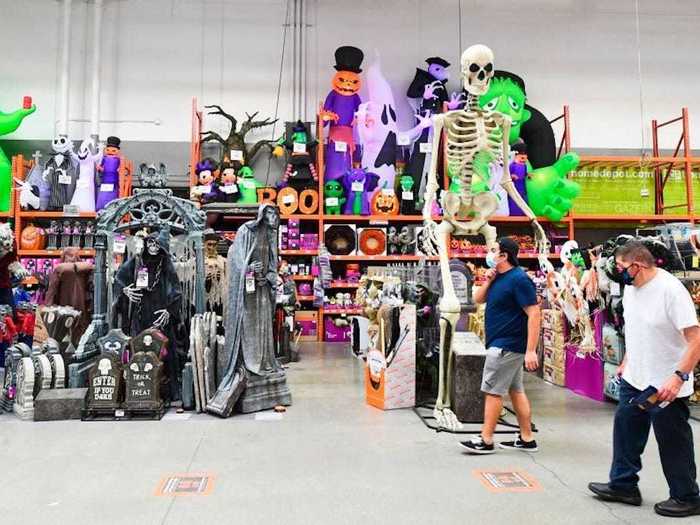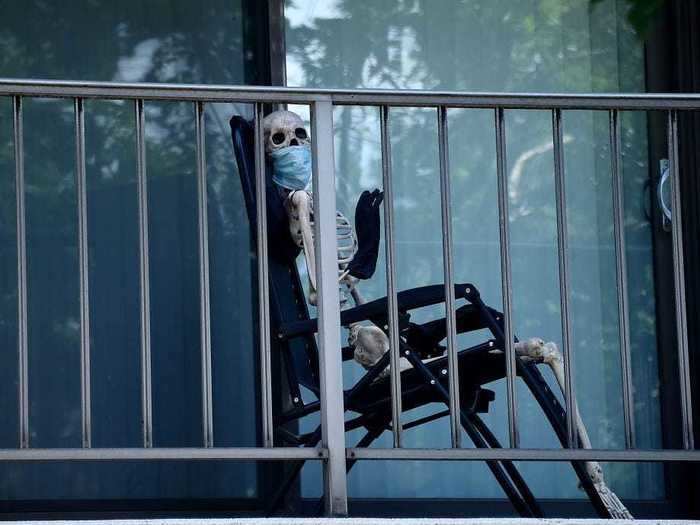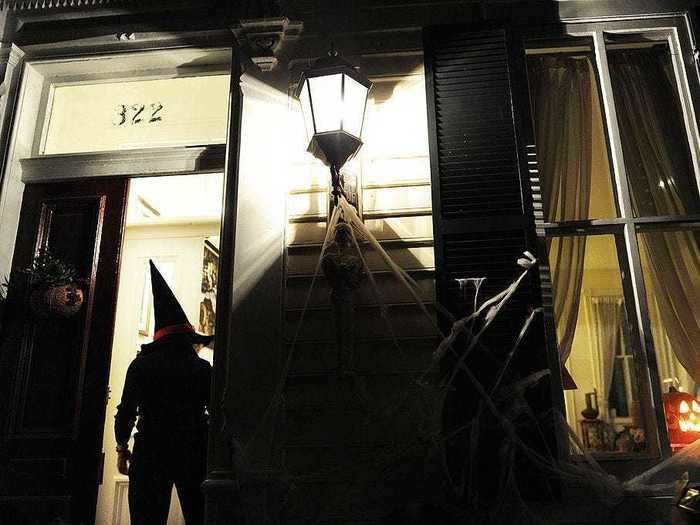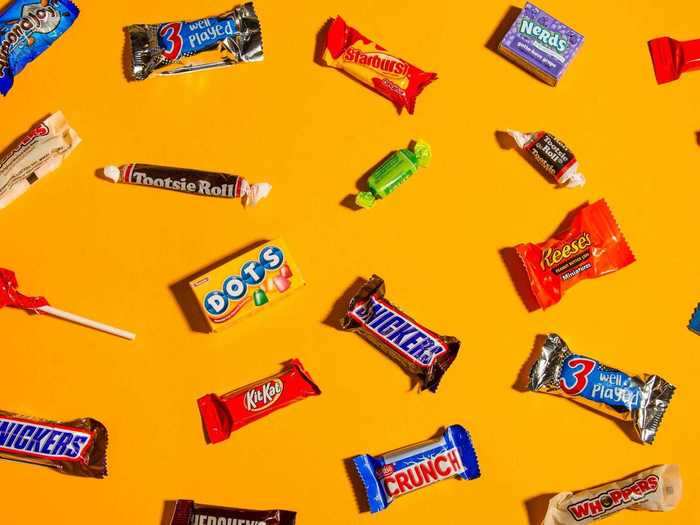With traditional trick-or-treating plans undone for many families, parents will have to get creative.Jessica Rinaldi/The Boston Globe via Getty Images
- Thanks to the coronavirus pandemic, Halloween will be quite different in 2020.
- Market intelligence firm Numerator found that 73% of shoppers expect to celebrate Halloween differently compared to previous years.
- From surging candy sales to contact-free trick-or-treating, here are all the important trends to look out for as All Hallows' Eve approaches.
Halloween is supposed to be the scariest holiday on the calendar in the US, filled with both ghostly frights and sweet trick-or-treating delights. But 2020 is not like most years. The coronavirus pandemic is still wreaking havoc across the country, meaning that fears over new outbreaks will likely dampen many traditional Halloween activities this year.
And consumers are taking notice, while planning accordingly. A survey from market intelligence firm Numerator found that 73% of respondents "expect their Halloween celebrations to be different this year."
What exactly will Halloween look like during a global pandemic? Here are a few trends to watch out for:
Spooky store displays will be gracing retailers earlier this year
FREDERIC J. BROWN/AFP via Getty Images
The holiday shopping season appears to begin earlier every year. And in 2020, consumers would have likely noticed Halloween displays starting to pop up back in August.
That's no accident. With the US still stuck in the grips of the coronavirus pandemic and the days blurring together for stuck-at-home consumers, retailers have an incentive to be aggressive about holiday sales, starting with Halloween.
The Hershey Company even teamed up with supermarket chain Alberton's to create candy-centric displays in stores in August. By bumping up the holiday shopping season two-to-four weeks, the company is looking to drive chocolate demand for its savory sweets.
Trick-or-treating will likely look quite different
OLIVIER DOULIERY/AFP via Getty Images
With the coronavirus pandemic still raging, the question of whether trick-or-treating is a risk worth taking is top-of-mind for many parents.
As a result, there is less interest in participating in the trick-or-treating tradition in 2020. According to a recent National Retail Federation survey, 62% of respondents plan to hand out candy this year, down from 69% in 2019. And only 23% plan to go trick-or-treating, down from 29% last Halloween.
Even among those who do dare to venture out, contact-free or stay-at-home options will likely be in vogue this year.
Writing for Business Insider, epidemiologist Dr. Syra Madad said she planned to treat her kids to a stay-at-home "candy hunt" to reduce risk.
And companies are taking notice, too. The Wall Street Journal reported that the Hershey Company has launched a Halloween safety guide. Meanwhile, candy startup Zolli Candy is working with Christmas tree company Treetopia to set up "candy trees" for touchless trick-or-treating.
Revelers will shell out more money than usual
Matt McClain/ The Washington Post via Getty Images
Without a doubt, 2020 has been a stressful year, which means that plenty of people won't be in a festive mood come October 31.
The National Retail Federation found that only 58% of respondents plan to celebrate Halloween this year.
That being said, those who do plan to commemorate All Hallows' Eve are going all out, spending an average of $91.12. That's $4.85 more than last year.
The NRF found that respondents this year are more likely to dress up pets, carve jack-o-lanterns, and decorate their homes than in 2019.
Candy lovers may have already gotten their fix
Crystal Cox/Insider
When it comes to sales, it's still unclear whether Halloween will leave a sweet or sour taste in the proverbial mouths of candy manufacturers.
Consumers are increasingly turning to sweets in order to deal with the stress of the pandemic. But that trend could actually dampen Halloween's impact, with shoppers already glutted out on treats.
Marketing tech firm Zeta Global has analyzed candy and chocolate sales for 2020 so far based on its platform of 2.4 billion consumers. The company found that Halloween is "still unpredictable," although September sales of snacks, cookies, and candy are up 96.2% from August.
But even with a dip in trick-or-treating traffic, many consumers will likely have candy on hand on Halloween night. Numerator found that 62% of shoppers plan on buying treats for themselves and their families, a 6% spike from last year.




